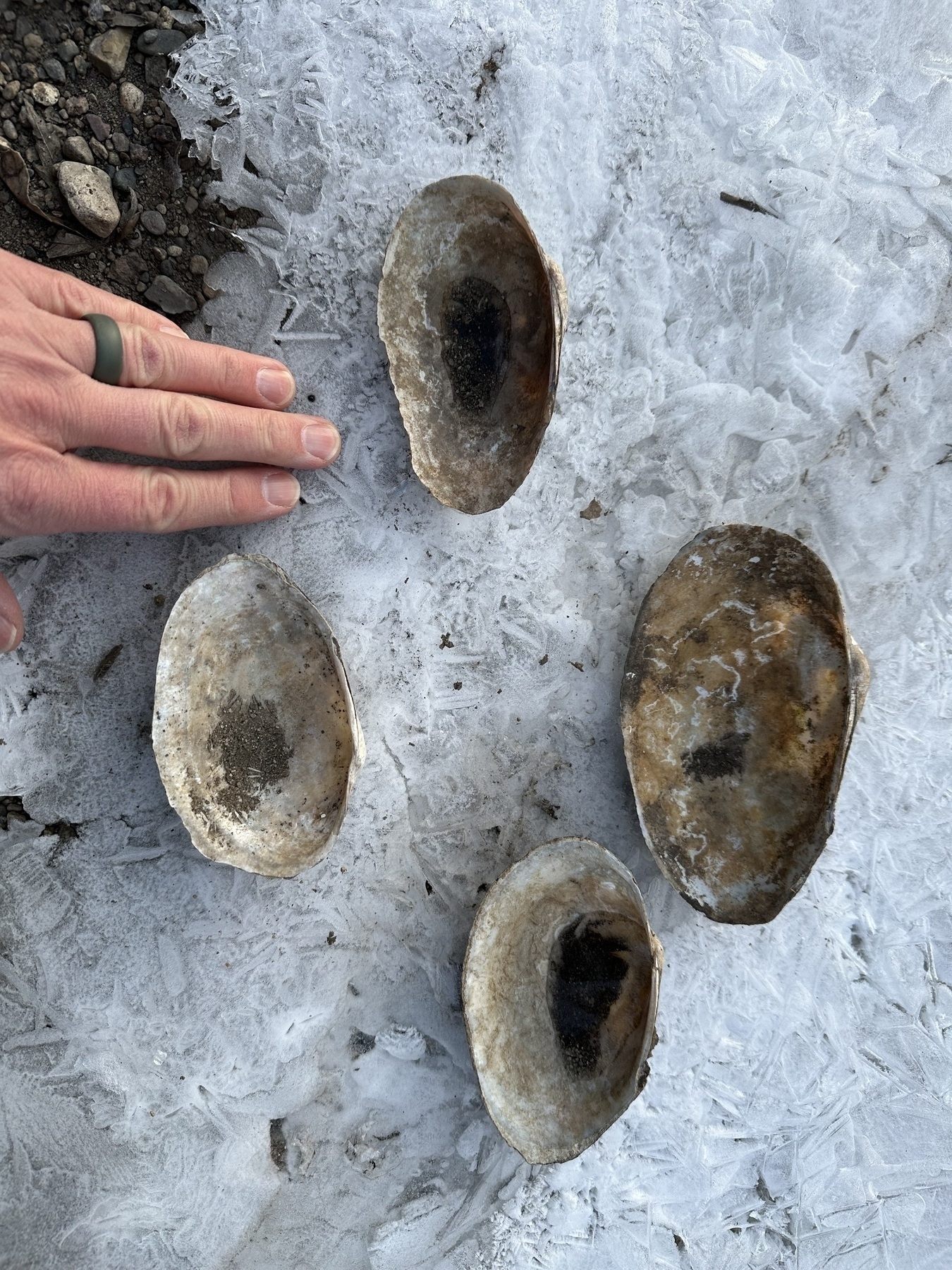What's a Mussel Worth?
During my sabbatical I’ve been studying freshwater mussels.
This is partly because I teach about mollusks like bivalves and cephalopods in my environmental classes.
It’s also because I work to ensure global access to clean water. Here’s an example of some clean water work I did for IBM.
What do these things have to do with one another?
Of course, mussels need clean water.
But they also make clean water. A single mussel can filter gallons of water a day. A healthy population of mussels can filter a whole river.
Unfortunately, native mussels are endangered across the continent, and their populations are in decline.
Often when people hear I study freshwater mussels they ask me “Can you eat them?” (I can’t, no. And most people don’t like the taste, I’m told. Also, many of them are federally or locally protected, so I don’t recommend trying to eat them.)
But instead of asking what they’re worth if we consume them, consider what mussels might be worth if we value them and help them to thrive.
Answer: they’ll help us in return.
As Robin Wall Kimmerer and Kathleen Dean Moore have both written, “All flourishing is mutual.”
The mussels can provide us with clean water if we can provide them with slightly less dirty water.
I’ll have more to say about this in the coming months, so for now I’ll leave you with a photo of mussel shells I found while walking the rivers near where I live this month. My hope is that these dead mussels are signs that there are many more that are alive, and just waiting for our help to really flourish.
